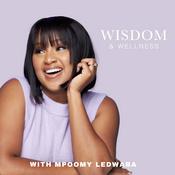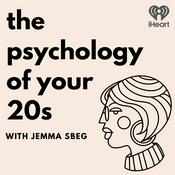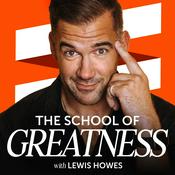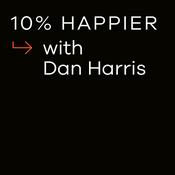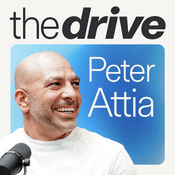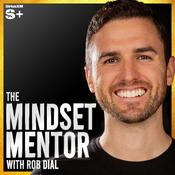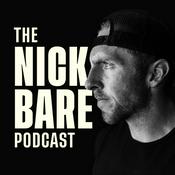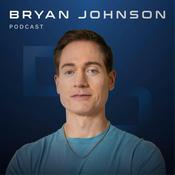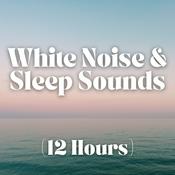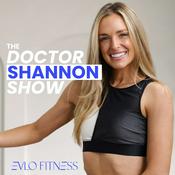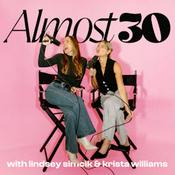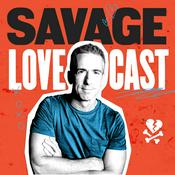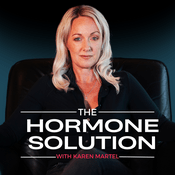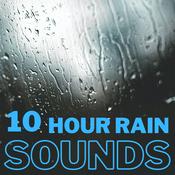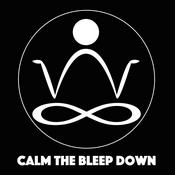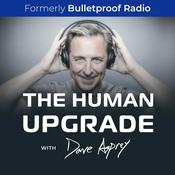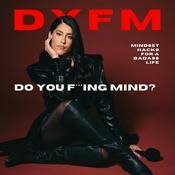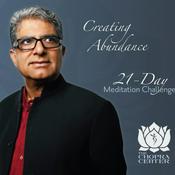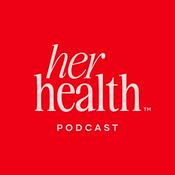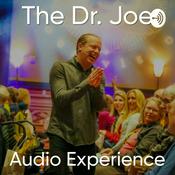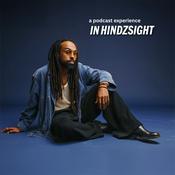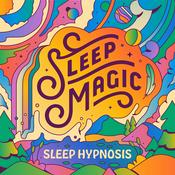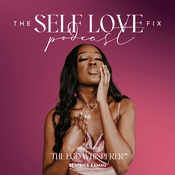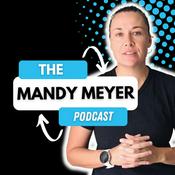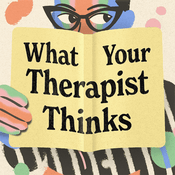979 episodes
- Other Episodes You Might Like:
Previous Episode - Fix Your Blood Sugar and Reverse Type 2 Diabetes and Prediabetes
Next Episode - Are Your Hormones Out of Balance?
More Like This:
Muscle Mass and Strength Gains After Menopause How Much How Fast?
12 Strength Training Mistakes in Menopause Robbing Your Results
Bone Density Updates for Women Over 50
Resources:
Track your muscle and body composition with the InBody Smart Scale. Use FLIPPING50 code to get 15% off!
Measure at home with the Flipping 50 Fitness Scorecard! We don't need to do VO2 max tests to know how hard to work and if we’re improving there are easy tests to give you an idea where you are right now… and give you a suggestion for training to improve.
My favorite Blood Glucose Monitor here! Analyze in real-time how your body responds to food, exercise, stress, and sleep. When you improve your muscle quality and quantity blood glucose levels naturally benefit
This episode is sponsored by Flipping 50 Menopause Fitness Specialist.
Become a health & fitness coach who finally speaks midlife women’s language.
Learn how to design workouts that balance hormones that actually get results for women in menopause.
You don’t need the perfect rep range for muscle, strength and bone after 50. You need the right effort, the right frequency, and a plan your joints and schedule can repeat.
We’re clearing up one of the most persistent myths in menopause fitness: The Rep Range Rulebook for muscle, strength and bone after 50.
For decades the “repetition continuum” told us:
Heavy = strength
Moderate = hypertrophy
Light = endurance
The problem? The research says it’s not that simple—or better said, it’s not that limiting, especially when you train close to failure and especially when your recovery and joints matter (hello, menopause).
I’m going to walk you through what the studies actually DID—step-by-step—and then we’ll translate it into women’s rep-range for muscle, strength, and bone density after 50. - Other Episodes You Might Like:
Previous Episode - Why Your Daily Workouts Are Making You Weaker After 50
Next Episode - What 40+ Studies Reveal About Rep-Range for Muscle, Strength, and Bone After 50
More Like This - 10 Things We Learned from Wearing a CGM, So You Don’t Have To
Resources:
Don’t know where to start? Book your Discovery Call with Debra. Leave this session with insight into exactly what to do right now to make small changes, smart decisions about your exercise time and energy.
My favorite Blood Glucose Monitor here! Analyze in real-time how your body responds to food, exercise, stress, and sleep.
You can’t fix your blood sugar if you don’t know you have a blood sugar problem.
A large percent of women are unaware they have prediabetes and in this episode we point out just how to see early signs, what options for treatment and lifestyle changes help, and hear some case studies that you can identify with.
You can fix your blood sugar and it’s not an overwhelming task. Join us for this episode and take a deeper dive with the book.
My Guest:
Dr. Beverly Yates ND is on a mission to help 3 Million people heal from type 2 diabetes and prediabetes. She has helped thousands of people reverse Type 2 Diabetes and Prediabetes, and now has a telehealth practice.
Dr. Yates is an MIT engineer, a Naturopathic physician, and the author of a new book whose publication date is January 20, 2026.
The title is: The Yates Protocol: 5 Simple Steps To Fix Your Blood Sugar & Reverse Type 2 Diabetes. The subtitle is: Make Peace With Food and Never Feel Deprived Again. This book is in the pre-order phase, and is published by the Avery imprint of Penguin Random House.
Her prior career as an MIT engineer helps her use health data and people's specific health goals to create practical, sustainable habits that help people heal from metabolic damage, and reverse type 2 diabetes and prediabetes.
Questions We Answer in This Episode:
[00:02:45] Are taking meds the only answer to dealing with blood sugar issues? Are they still the first thing prescribed?
[00:06:37] Your “take” on CGM use? Is “knowing” from CGM enough… or do we still resist change?
[00:10:20] Does family history of diabetes predetermine personal risk? Is a person doomed if there is a family history of type 2 diabetes or prediabetes?
[00:15:09] What is the Yates Protocol and what struck you to create this?
[00:20:18] What and where can we get the secret chapter of your book, The Yates Protocol? - This episode is sponsored by Cozy Earth and Timeline.
My bedding of choice to wake up refreshed is Cozy Earth. I love the luxury feeling right at home. Go to https://cozyearth.com/ and use code Flipping50 upon checkout to get 20% off and a 100 night sleep trial and a 10-year warranty.
Don’t let another year go by feeling less than your best. Grab 30% off your first month of Mitopure Gummies at https://timeline.com/flipping2026
Connect with Flipping 50:
Facebook Group - Flipping50 Insiders
Instagram - @Flipping50TV
YouTube - @Flipping50TV
Other Episodes You Might Like:
Previous Episode - When It's Not Calories in Calories Out, What Next?
Next Episode - Fix Your Blood Sugar and Reverse Type 2 Diabetes and Prediabetes
More Like This: Exercise Recovery After 40: Connective Tissue in Menopause
Resources:
The Flipping 50 VIP Membership is now open! Join the first and original exclusively made-for-women in menopause and beyond fitness community.
Don’t know where to start? Book your Discovery Call with Debra. Leave this session with insight into exactly what to do right now to make small changes, smart decisions about your exercise time and energy.
What if your daily workouts are the very thing making you weaker after 50?
We’re diving into the real science on how estrogen directly influences muscle recovery, strength, tendon health, and mitochondrial function—and what happens when it declines.
If you’re frustrated feeling weaker after 50 and with workouts that used to work but now leave you sore, drained, or injured, you’re not crazy, lazy nor do you lack willpower. Your biology has changed.
The fix isn’t “more effort.” It's a smarter strategy rooted in hormonal reality to make you not weaker after 50.
If this episode made you flip your workout routine — share it!
Post to your stories, tag @Flipping50TV and share the episode to your best friend.
Meet other women, who are done with outdated fitness advice, at Flipping50 Facebook Group.
👉 Subscribe, share, and leave a review if you’re ready to flip the script on Flipping 50 The Stronger Way. - This episode is sponsored by Cozy Earth.
My bedding of choice to wake up refreshed is Cozy Earth. I love the luxury feeling right at home. Go to https://cozyearth.com/ and use code Flipping50 upon checkout to get 20% off and a 100 night sleep trial and a 10-year warranty.
Other Episodes You Might Like:
Previous Episode - Fitness Trends For 2026 — Midlife Women’s Edition
Next Episode - Why Your Daily Workouts Are Making You Weaker After 50
More Like This - Why Those Holiday Meals Make You Miserable (It’s Not the Calories)
Resources:
The Flipping 50 VIP Membership is now open! Join the first and original exclusively made-for-women in menopause and beyond fitness community.
Don’t know where to start? Book your Discovery Call with Debra. Leave this session with insight into exactly what to do right now to make small changes, smart decisions about your exercise time and energy.
Join the Flipping50 Insiders Facebook Group. Connect with other women navigating menopause fitness and get daily tips and support.
Join Flipping 50 Menopause Fitness Specialist® to become a coach!
You already know it’s not calories in, calories out, so now what is it? That’s the million dollar question. We answer with a refreshing reminder of things you may have heard but framed from a different lens.
Today’s guest amplifies a recent theme. That is not just is it not about calories in calories out, but it’s not always about the physical result of physical exercise or food.
My Guest:
Stephanie Crassweller, founder of VitalityOET, and host of the Top 1% ranked Metabolism and Menopause Podcast. With a Bachelor's and Master's in Kinesiology and over a decade of clinical and coaching experience, she's helped thousands of women worldwide reclaim their energy, health, and vitality through perimenopause and beyond.
Questions We Answer in This Episode:
[00:14:12] Why does “eat less, move more” not seem to work as well once we hit our 40s?
[00:16:30] What are the biggest factors that women are so unaware of that are preventing them from losing weight?
[00:18:54] Is estrogen to blame for their weight gain problems?
[00:29:40] Are carbs really the cause of weight gain and poor blood sugar?
[00:41:56] How does identity and life change impact our health and fitness journeys? - This episode is sponsored by Flipping 50 Menopause Fitness Specialist.
Become a health & fitness coach who finally speaks midlife women’s language.
Learn how to design workouts that balance hormones that actually get results for women in menopause.
Connect with Flipping 50:
Flipping50 Insiders Facebook Group
Instagram - @Flipping50TV
YouTube - @Flipping50TV
References:
ACSM 2026 Trends Report
ACE 2026 Fitness Trends from Advisory Board
Other Episodes You Might Like:
Previous Episode - The Preconception Revolution
Next Episode - When It's Not Calories in Calories Out, What Next?
More Like This: What's Still Missing from Women's Fitness Programs
Resources:
Join Flipping 50 Menopause Fitness Specialist® to become a coach!
Don’t know where to start? Book your Discovery Call with Debra. Leave this session with insight into exactly what to do right now to make small changes, smart decisions about your exercise time and energy.
Forget the hype—let’s break down what really matters in 2026’s fitness trend reports. From AI-powered workouts to strength training for menopause, we’re going beyond the buzzwords to talk real-life application for women in midlife. Spoiler alert: if you’re over 40, you’re the trend.
Every January, I give you my straight-shooting take on the year’s biggest fitness trends—and 2026 is no exception. We’re looking at two major lists:
ACSM’s Worldwide Fitness Trends Survey, compiled from thousands of professionals who volunteer their opinions.
ACE’s 2026 Trend Report, sourced from an advisory board of industry experts who’ve interpreted what they’re seeing in the field and where it’s going.
This isn’t about chasing every shiny object. It’s about figuring out what actually supports health, strength, and joy in your 40s, 50s, and beyond.
More Health & Wellness podcasts
Trending Health & Wellness podcasts
About The Flipping 50 Show
The podcast for women in menopause and beyond who want to change the way they age. Fitness, wellness, and health science put into practical tips you can use today. You still got it, girl!
Podcast websiteListen to The Flipping 50 Show, Wisdom & Wellness with Mpoomy Ledwaba and many other podcasts from around the world with the radio.net app

Get the free radio.net app
- Stations and podcasts to bookmark
- Stream via Wi-Fi or Bluetooth
- Supports Carplay & Android Auto
- Many other app features
Get the free radio.net app
- Stations and podcasts to bookmark
- Stream via Wi-Fi or Bluetooth
- Supports Carplay & Android Auto
- Many other app features


The Flipping 50 Show
Scan code,
download the app,
start listening.
download the app,
start listening.

